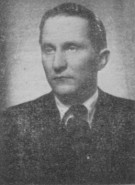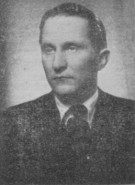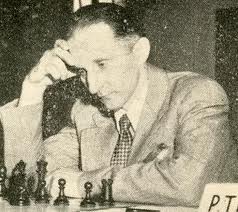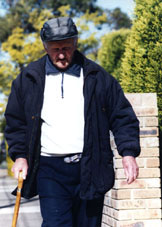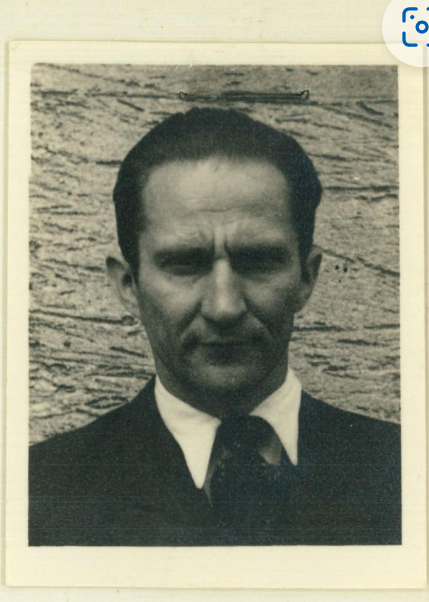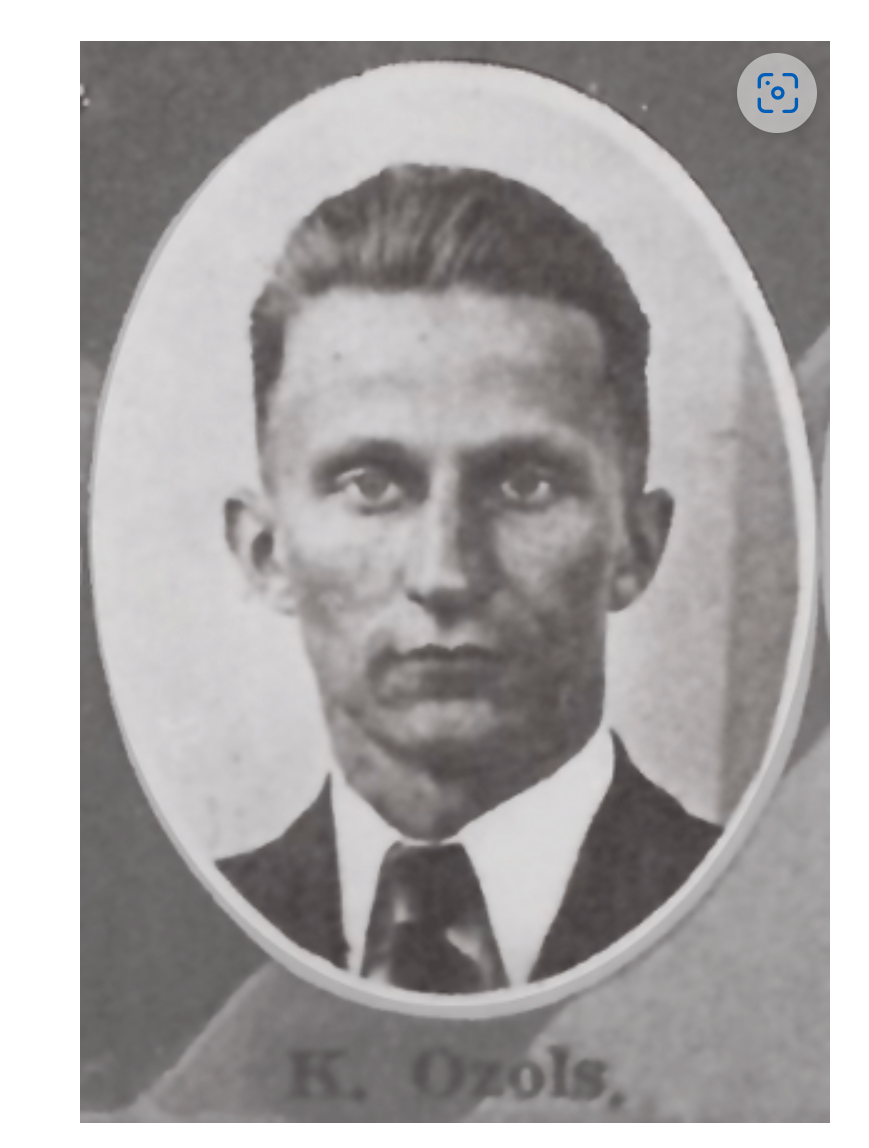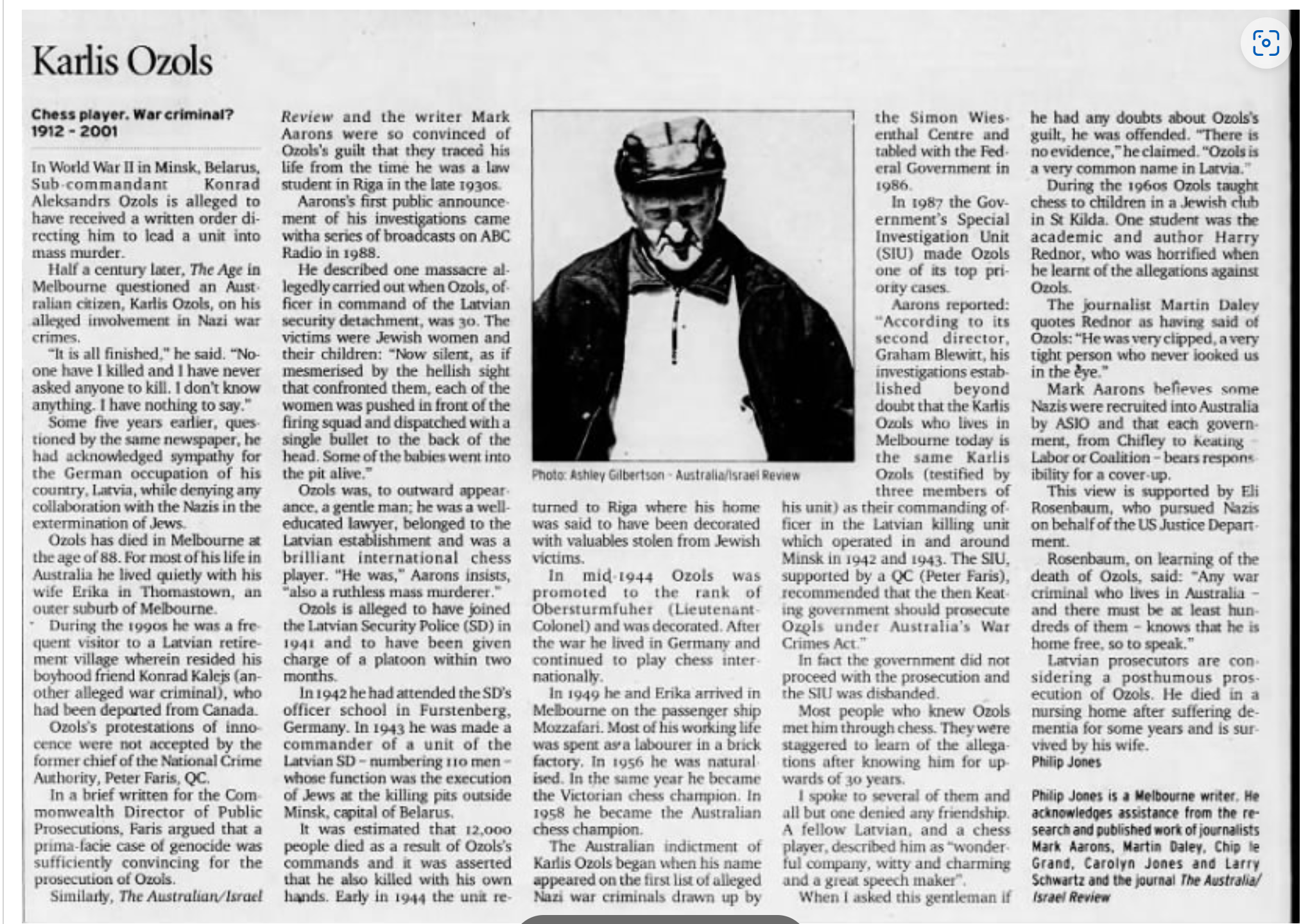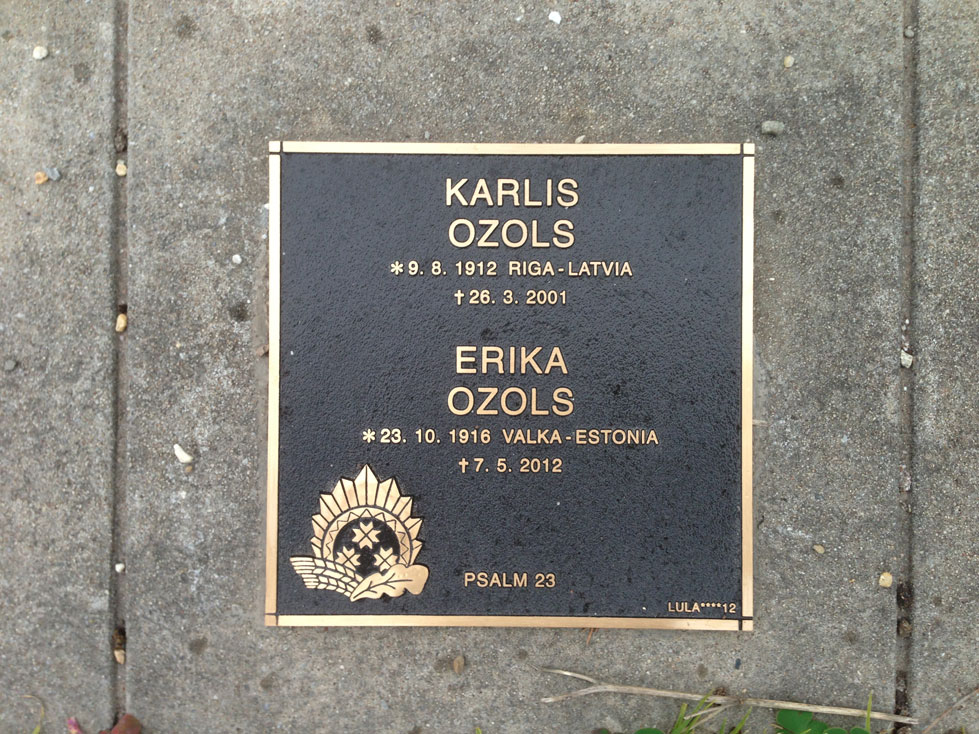Mark Aarons, whose 1980s radio programs led to a government investigation of Nazi war criminals in Australia, describes the scene of the 1943 mass murder, 25 kilometres outside Minsk.
In a book soon to be released, War Criminals Welcome, he writes that the officer in command of the Latvian security detachment on that day was Karlis Aleksandrs Ozols, then 30.
Aarons says a special war-criminals investigations unit had requested he keep Ozols' out of a previous book, Sanctuary, "on the basis that he was one of their key suspects, and they did not want material in the public domain that would prejudice any trial".
Ozols was born in August, 1912, and studied law at Riga University. He had travelled through Europe to play in major chess championships.
"I think that we should mark Ozols' death as one of the enigmas of what the Holocaust was about," Aarons said.
He was educated, sophisticated, well travelled, a member of Riga's elite. ``Yet he was also a ruthless mass murderer ..."
Between July, 1942, and September, 1943, Ozols had carried out operations near Minsk, capital of the then Byelorussia, as a key officer in the Nazi-controlled Latvian security police that would come to be known as the Arajs Kommando. It was named after its commanding officer, Viktors Arajs, who was convicted of war crimes in West Germany in 1980 and sentenced to life imprisonment.
"What the death of Ozols reminds us," says Aarons, ``is that successive Australian governments have turned a blind eye to mass killers, despite substantial evidence of the guilt of people like Ozols."
They had similarly failed to bring to justice people in places such as Chile, Cambodia, the Balkans or Afghanistan.
Ozols had been a unit commando, one of about 100 Latvian security-police officers who carried out mass executions of Jews, gypsies and others in Byelorussia.
"In Ozols' case, there is no doubt at all that he personally took part in not only ordering his men to shoot people, but shooting them himself," Aarons said.
His name had first surfaced in the mid-1960s in Soviet intelligence documents. The Commonwealth Police launched a series of investigations during which, says Aarons, Ozols was interviewed and made admissions that substantiated the claims.
Ozols had again implicated himself in his own evidence in the trial of Viktors Arajs.
After Aarons named him in a 1986 ABC radio series he produced, the Ozols case was examined by Andrew Menzies, the Attorney-General's Department official appointed to investigate. His was one of the most serious cases handed on to the special investigations unit in 1987.
The case against Ozols was among 15 that had come close to prosecution towards the end of the special investigations unit's life. in 1992.
In May, 1992, the Ozols case was referred to the Director of Public Prosecutions. It sought an opinion from Peter Faris, QC, who said there was a prima facie case.
"The government ignored that advice and closed," the author says, ``basically arguing that it would cost too much to conclude the search for justice."
Karlis Aleksandrs Ozols was a resident of Melbourne from March 25, 1949, and an Australian citizen from October 17, 1956. Born on August 9, 1912, he served in the Latvian Army, and he and his men allegedly killed thousands in operations in and around Minsk.
By: Larry Schwartz
Karlis Alexandrs Ozols, Chess Master
Australian Chess Co-Champion in 1956
Mark Aarons, whose 1980s radio programs led to a government investigation of Nazi war criminals in Australia, describes the scene of the 1943 mass murder, 25 kilometres outside Minsk.
In a book soon to be released, War Criminals Welcome, he writes that the officer in command of the Latvian security detachment on that day was Karlis Aleksandrs Ozols, then 30.
Aarons says a special war-criminals investigations unit had requested he keep Ozols' out of a previous book, Sanctuary, "on the basis that he was one of their key suspects, and they did not want material in the public domain that would prejudice any trial".
Ozols was born in August, 1912, and studied law at Riga University. He had travelled through Europe to play in major chess championships.
"I think that we should mark Ozols' death as one of the enigmas of what the Holocaust was about," Aarons said.
He was educated, sophisticated, well travelled, a member of Riga's elite. ``Yet he was also a ruthless mass murderer ..."
Between July, 1942, and September, 1943, Ozols had carried out operations near Minsk, capital of the then Byelorussia, as a key officer in the Nazi-controlled Latvian security police that would come to be known as the Arajs Kommando. It was named after its commanding officer, Viktors Arajs, who was convicted of war crimes in West Germany in 1980 and sentenced to life imprisonment.
"What the death of Ozols reminds us," says Aarons, ``is that successive Australian governments have turned a blind eye to mass killers, despite substantial evidence of the guilt of people like Ozols."
They had similarly failed to bring to justice people in places such as Chile, Cambodia, the Balkans or Afghanistan.
Ozols had been a unit commando, one of about 100 Latvian security-police officers who carried out mass executions of Jews, gypsies and others in Byelorussia.
"In Ozols' case, there is no doubt at all that he personally took part in not only ordering his men to shoot people, but shooting them himself," Aarons said.
His name had first surfaced in the mid-1960s in Soviet intelligence documents. The Commonwealth Police launched a series of investigations during which, says Aarons, Ozols was interviewed and made admissions that substantiated the claims.
Ozols had again implicated himself in his own evidence in the trial of Viktors Arajs.
After Aarons named him in a 1986 ABC radio series he produced, the Ozols case was examined by Andrew Menzies, the Attorney-General's Department official appointed to investigate. His was one of the most serious cases handed on to the special investigations unit in 1987.
The case against Ozols was among 15 that had come close to prosecution towards the end of the special investigations unit's life. in 1992.
In May, 1992, the Ozols case was referred to the Director of Public Prosecutions. It sought an opinion from Peter Faris, QC, who said there was a prima facie case.
"The government ignored that advice and closed," the author says, ``basically arguing that it would cost too much to conclude the search for justice."
Karlis Aleksandrs Ozols was a resident of Melbourne from March 25, 1949, and an Australian citizen from October 17, 1956. Born on August 9, 1912, he served in the Latvian Army, and he and his men allegedly killed thousands in operations in and around Minsk.
By: Larry Schwartz
Karlis Alexandrs Ozols, Chess Master
Australian Chess Co-Champion in 1956
Inscription
KARLIS
OZOLS
*9.8.1912 RIGA-LATVIA
†26.3.2001
ERIKA
OZOLS
*23.10.1918 VALKA-ESTONIA
†7.5.2012
Gravesite Details
Fawkner Memorial Park wishes to advise that the location of the remains of the late Karlis Ozols who passed away on Monday, March 26, 2001, aged 88 are located at Latvian Lutheran Garden Niches Niche 12.
Family Members
Sponsored by Ancestry
Advertisement
Advertisement
